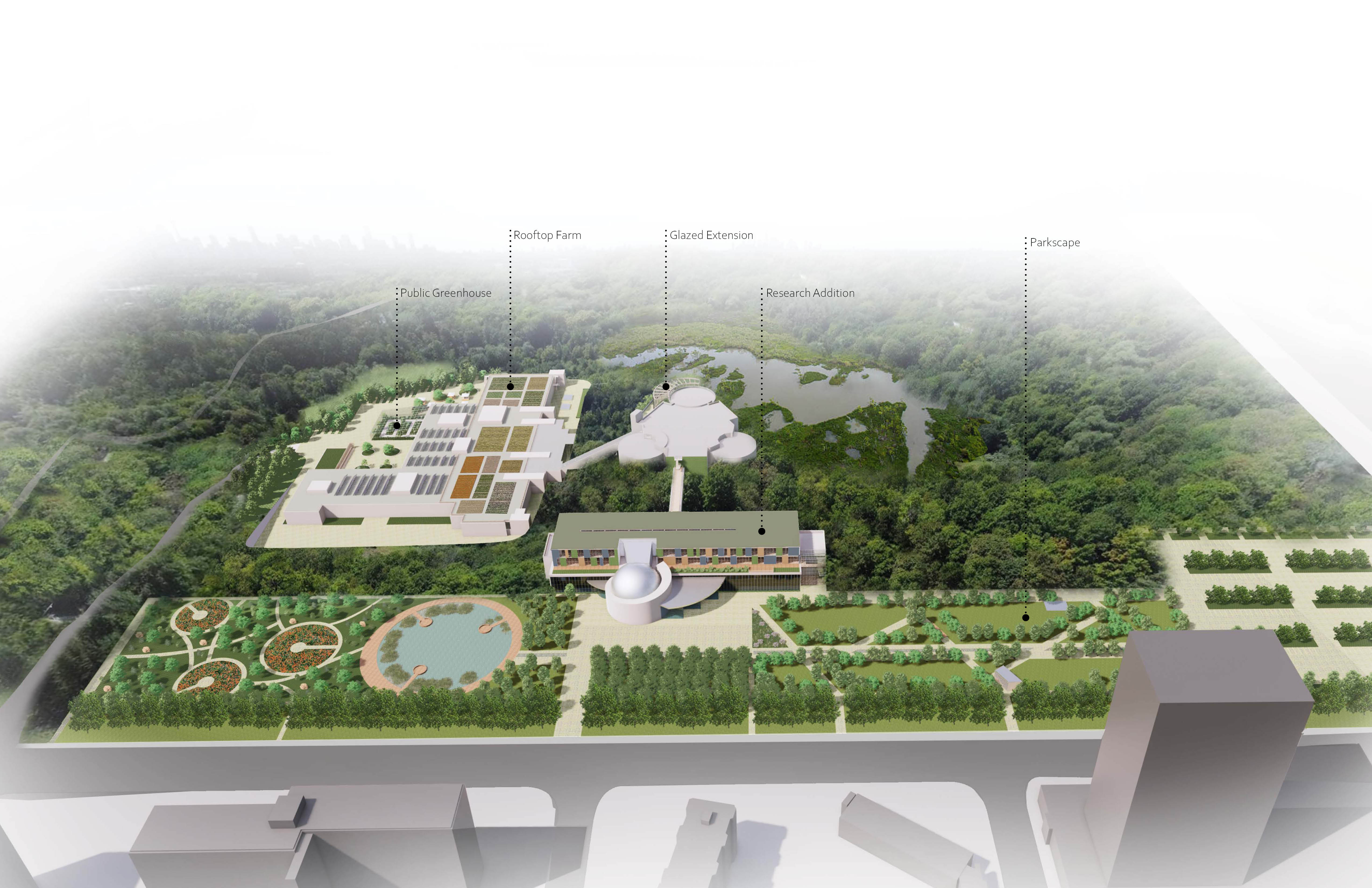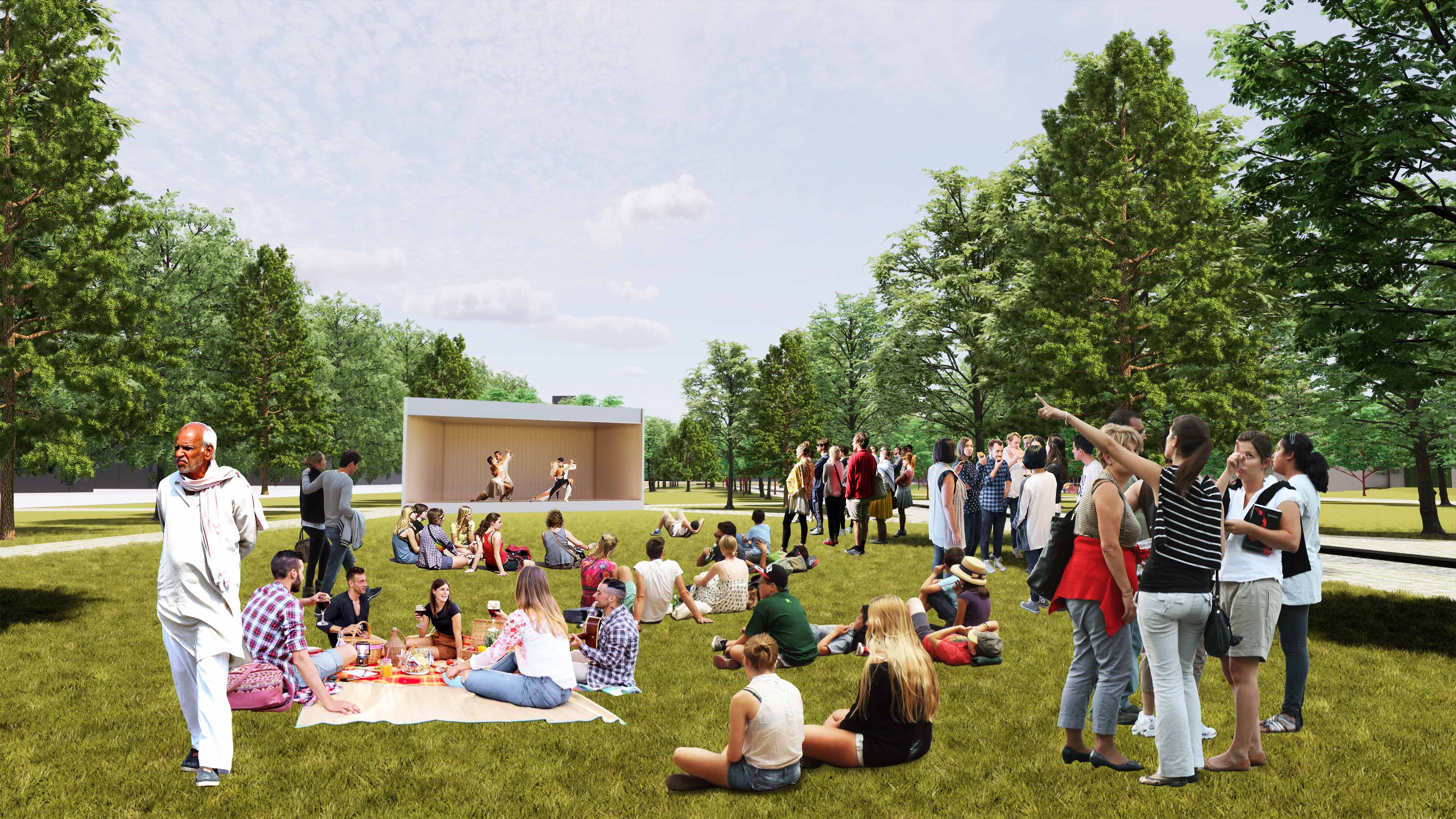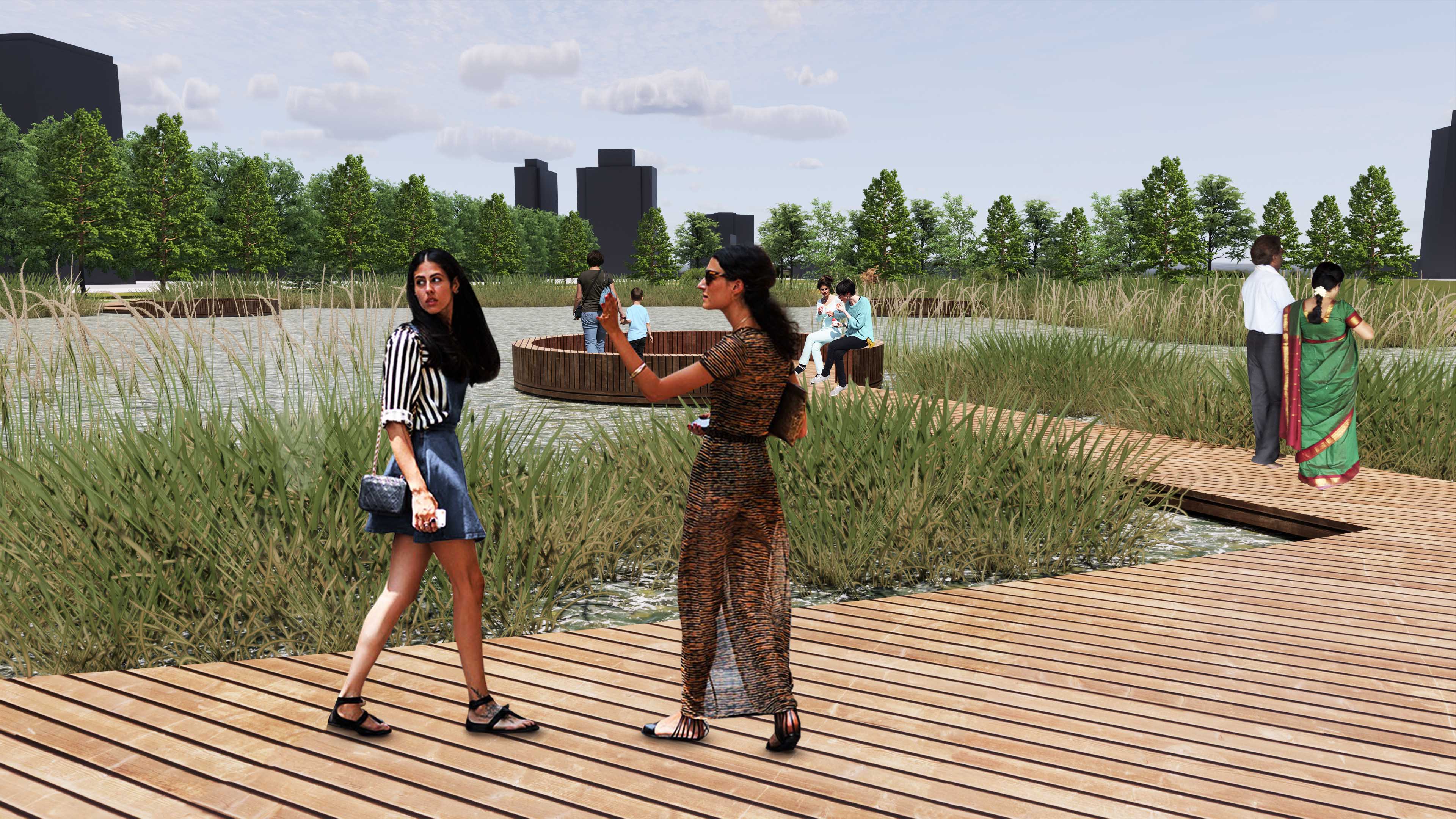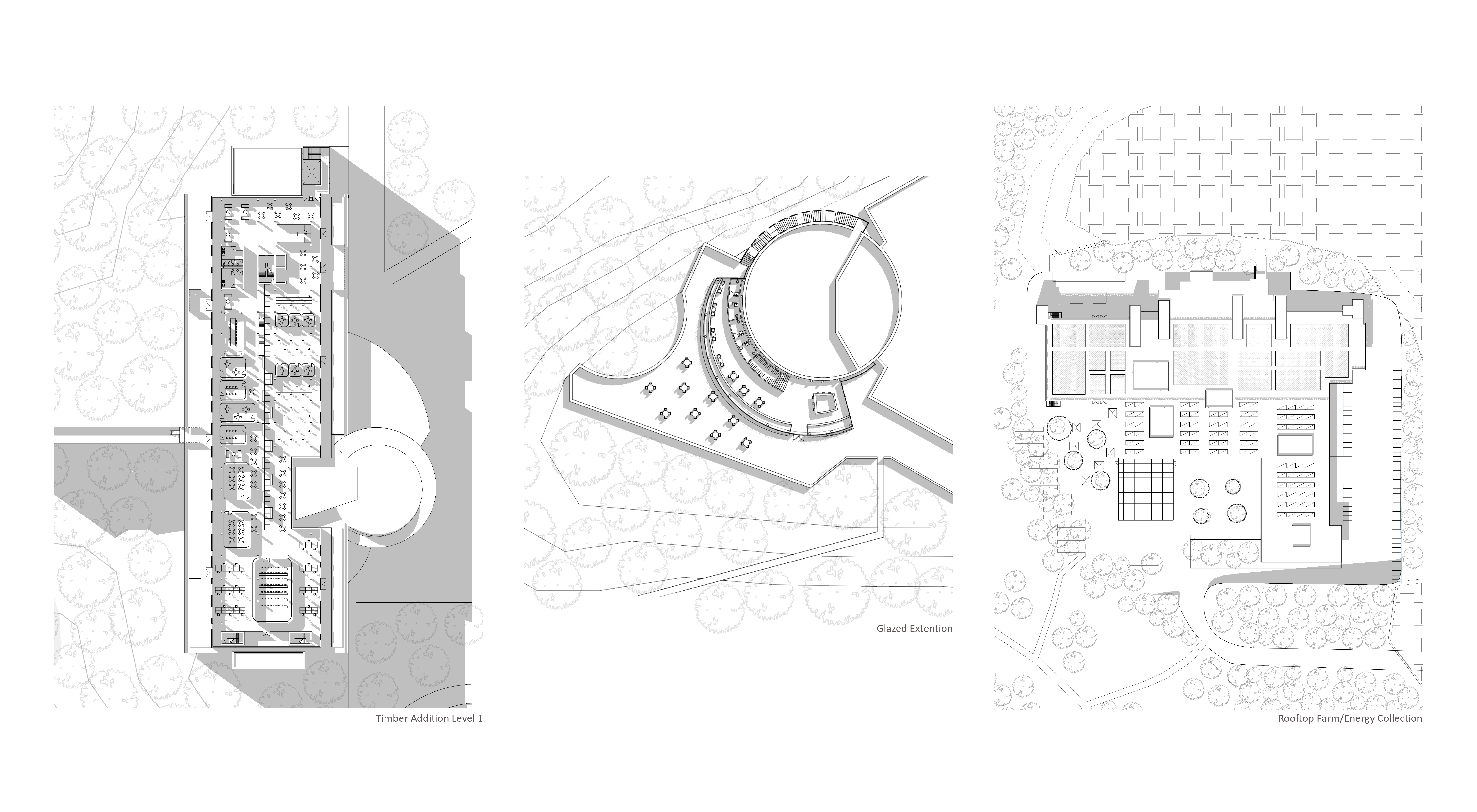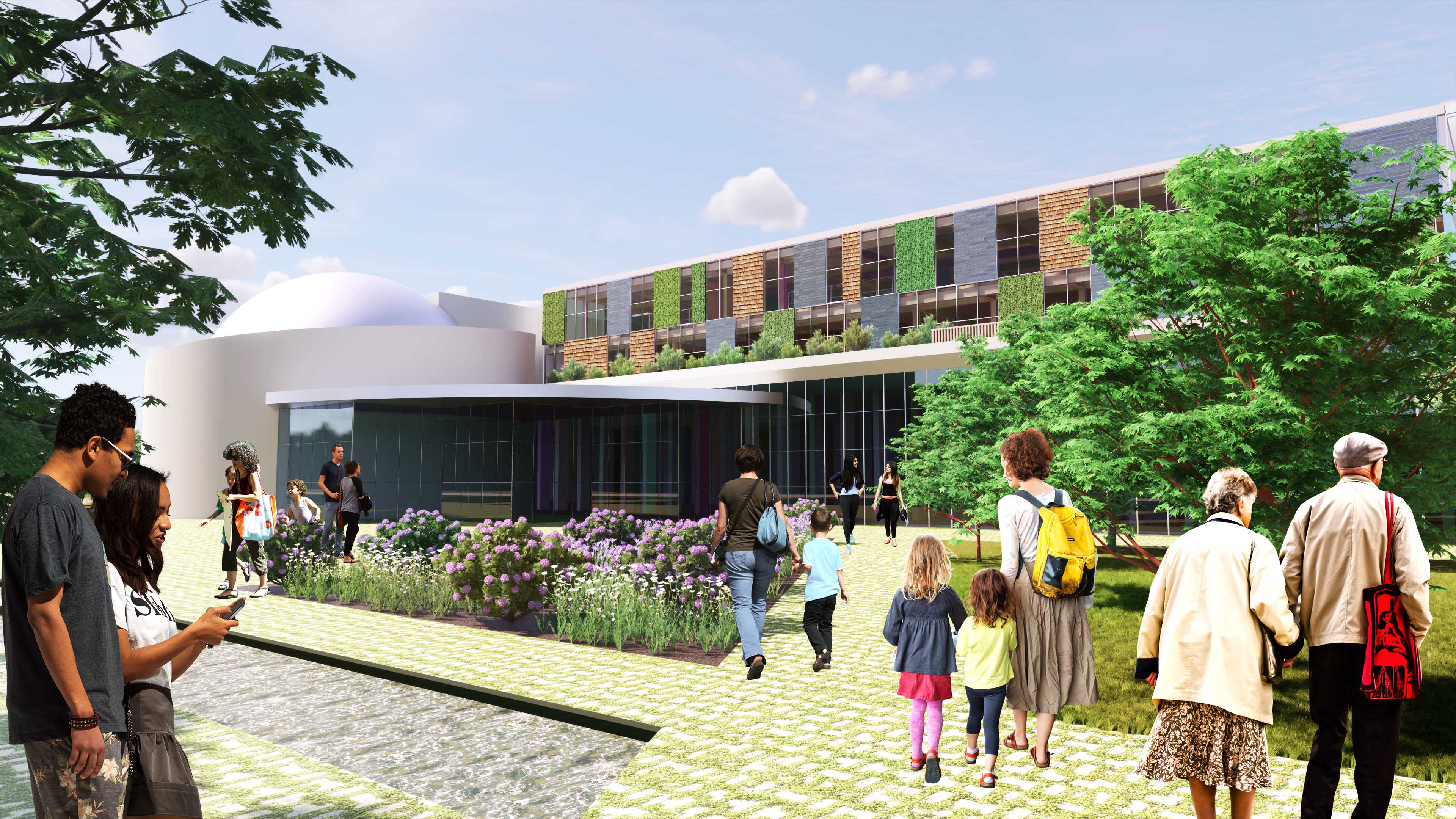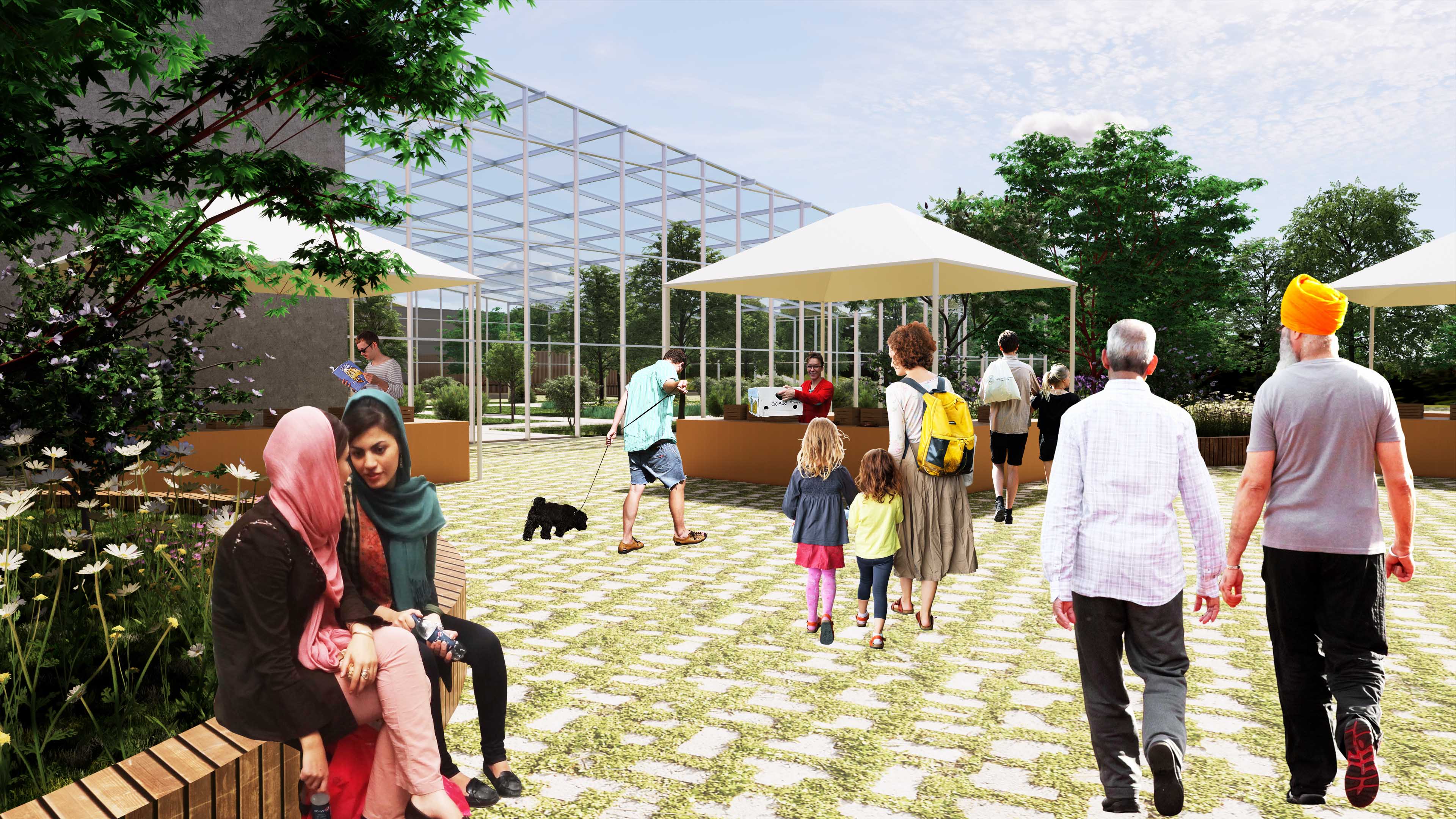MASTER OF ARCHITECTURE
Rutuja Atre—OAA Guild Medal
![]()
Rutuja Atre—OAA Guild Medal

About the Award
Awarded to a student who has achieved overall academic excellence in graduate studies.
The Anthropocene epoch at last identifies the role of human activity in influencing the climate crisis. Buildings contribute significantly to society’s current condition of ‘unsustainability,’ modifying the planet beyond their physical boundaries. Within the profession, we are beginning to understand that this is more than a problem of performance energy, but reckoning its greater web—one of material, place, time, and global communities. A hyper-ecological approach asserts that the act of building requires a profuse tally of its embodied energy and externalized impacts, socially and ecologically. The current architectural discourse should consider first not to build, but to reclaim and reconnect.
The thesis project takes a 1960’s Brutalist science museum as an exploration of how we might approach the act of design, from one of demolition and reconstruction to one that preserves and enhances the existing built and natural infrastructure. By repositioning the role of the museum into a 21st-century environmental centre, the project becomes an educational instrument, connecting the adjacent densifying neighbourhoods to their context and maximizing the potential of the site. The project demonstrates how architecture can operate sympathetically within ecological systems to accelerate the transformation from the Anthropocene—towards an ecologically aware and responsible era of the Ecocene.
Awarded to a student who has achieved overall academic excellence in graduate studies.
The Anthropocene epoch at last identifies the role of human activity in influencing the climate crisis. Buildings contribute significantly to society’s current condition of ‘unsustainability,’ modifying the planet beyond their physical boundaries. Within the profession, we are beginning to understand that this is more than a problem of performance energy, but reckoning its greater web—one of material, place, time, and global communities. A hyper-ecological approach asserts that the act of building requires a profuse tally of its embodied energy and externalized impacts, socially and ecologically. The current architectural discourse should consider first not to build, but to reclaim and reconnect.
The thesis project takes a 1960’s Brutalist science museum as an exploration of how we might approach the act of design, from one of demolition and reconstruction to one that preserves and enhances the existing built and natural infrastructure. By repositioning the role of the museum into a 21st-century environmental centre, the project becomes an educational instrument, connecting the adjacent densifying neighbourhoods to their context and maximizing the potential of the site. The project demonstrates how architecture can operate sympathetically within ecological systems to accelerate the transformation from the Anthropocene—towards an ecologically aware and responsible era of the Ecocene.
